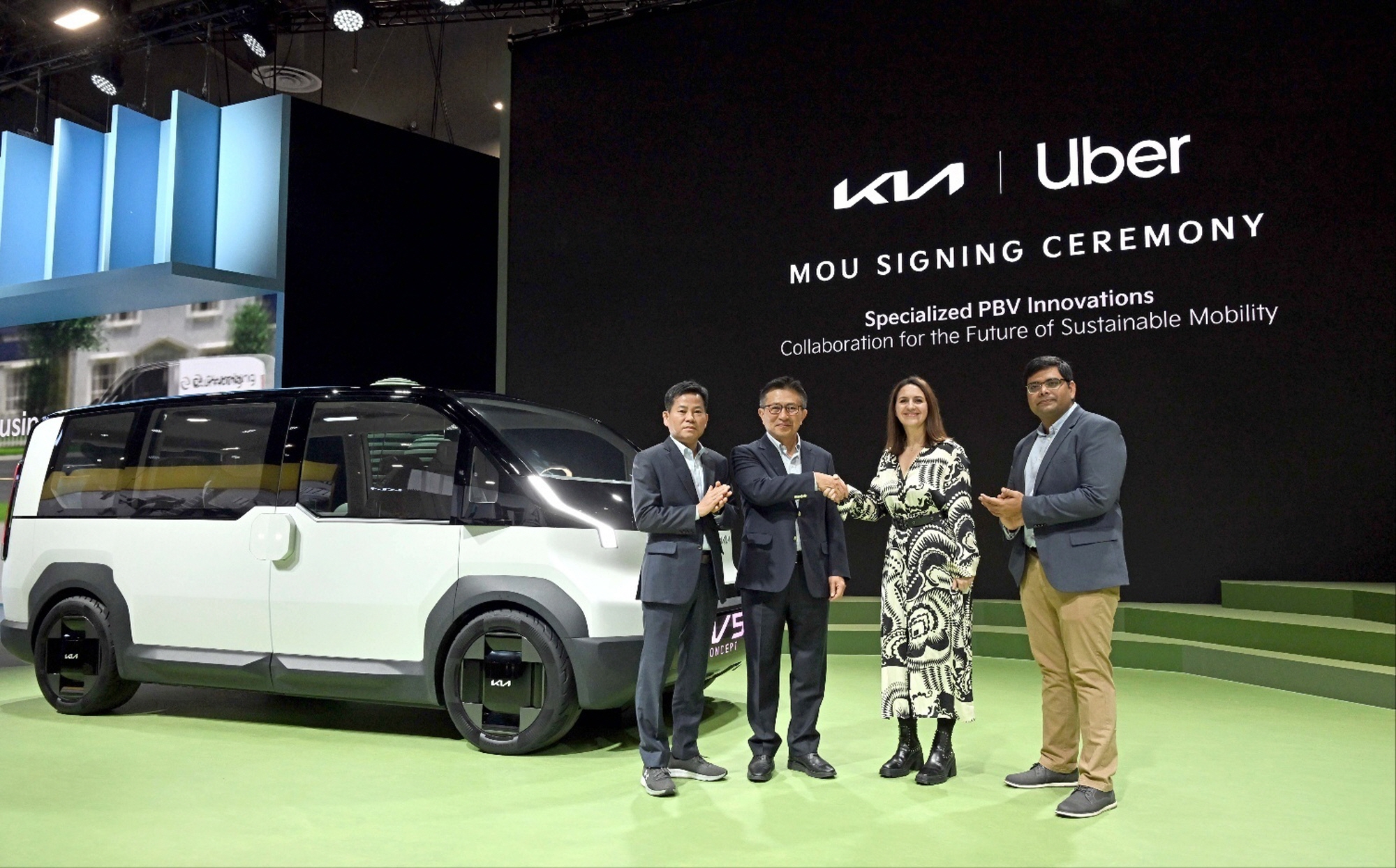
Kia is teaming up with Uber, a global ride-sharing service company, to actively expand its Purpose Built Vehicle (PBV) business.
On January 10th (local time), Kia signed a partnership agreement with Uber at the Las Vegas Convention Center during CES 2024, agreeing to cooperate in the development and supply of PBVs optimized for Uber Mobility.
The agreement ceremony held at the Kia exhibition was attended by key figures from both companies, including Yoon Seung-kyu, Vice President and Head of Kia North America, Kim Sang-dae, Executive Vice President of Kia’s PBV Business Division, Susan Anderson, Head of Uber’s Global Business Division, Ajay Dalbi, Uber’s Global Business Development Leader, and Nishit Kumar, Uber’s Global Business Development Director.
This agreement was made in line with Kia’s vision to provide experiential value beyond just vehicles, while Uber aims to achieve its goal of carbon neutrality by 2040 through the expansion of PBV operations.
Through this partnership, both companies will work together to identify optimal specifications for ride-hailing drivers and passengers using the Uber platform, leading to the production and supply of specialized PBV models while actively reflecting diverse needs of drivers and customers during the development process.
The PBVs to be provided to Uber will be based on Kia’s first dedicated PBV model, the ‘PV5’, scheduled for mass production in 2025.
The PV5, featuring the first dedicated EV platform for PBVs, offers more space and better livability compared to conventional passenger taxi models. It will also be equipped with a driver-specific application featuring an open infotainment system, providing a personalized travel environment for passengers.
The two companies plan to continue collaborating to develop and provide user-centered solutions based on software, data, and AI.
Additionally, by applying ‘Kia Connect’, they will offer PBV diagnostics and preventive services, enabling drivers to detect potential signs of failure before they occur, thus minimizing maintenance costs and downtime, ultimately lowering the total cost of ownership (TCO).
Kia and Uber will also actively collaborate to promote public and home charging infrastructure using a global charging network to alleviate the inconveniences faced by Uber drivers transitioning to PBV. Furthermore, they will advance the development of software that suggests optimal driving patterns and charging routes based on the analysis of charging station and vehicle data.
The two companies will also work together to expand the operation of the ‘Kia Flex’ service in North America, linked with the Uber platform. By providing dedicated package benefits such as rental, insurance, and maintenance, they aim to encourage more Uber drivers to subscribe to vehicles through Kia Flex.
Kia anticipates that this partnership with Uber will enhance the value and role of PBVs through the development of customized vehicles reflecting diverse requirements, while contributing to the delivery of total mobility solutions optimized for individual customers’ business environments.
Yoon Seung-kyu, Kia’s North American Head, stated, “Through our partnership with Uber, Kia aims to enhance the mobility experience with industry-leading hardware technology and high-level software and services. Kia’s PBVs will serve as a bridge to the future mobility industry and contribute to the electrification and sustainability goals that both companies are pursuing.”
Susan Anderson, Uber’s Head of Global Business, mentioned, “Through sharing mobility-related insights and collaboration with Kia, we hope to enhance productivity and optimize total ownership costs for more Uber platform users, thereby accelerating the transition to electric vehicles.”
Meanwhile, during the CES 2024 media day, Kia presented ‘PBV’ as a core future business to lead the innovation of mobility solutions and planned to showcase differentiated PBVs, aiming to become a leader in the future mobility market.
Lee Sang-jin daedusj@autodiary.kr

